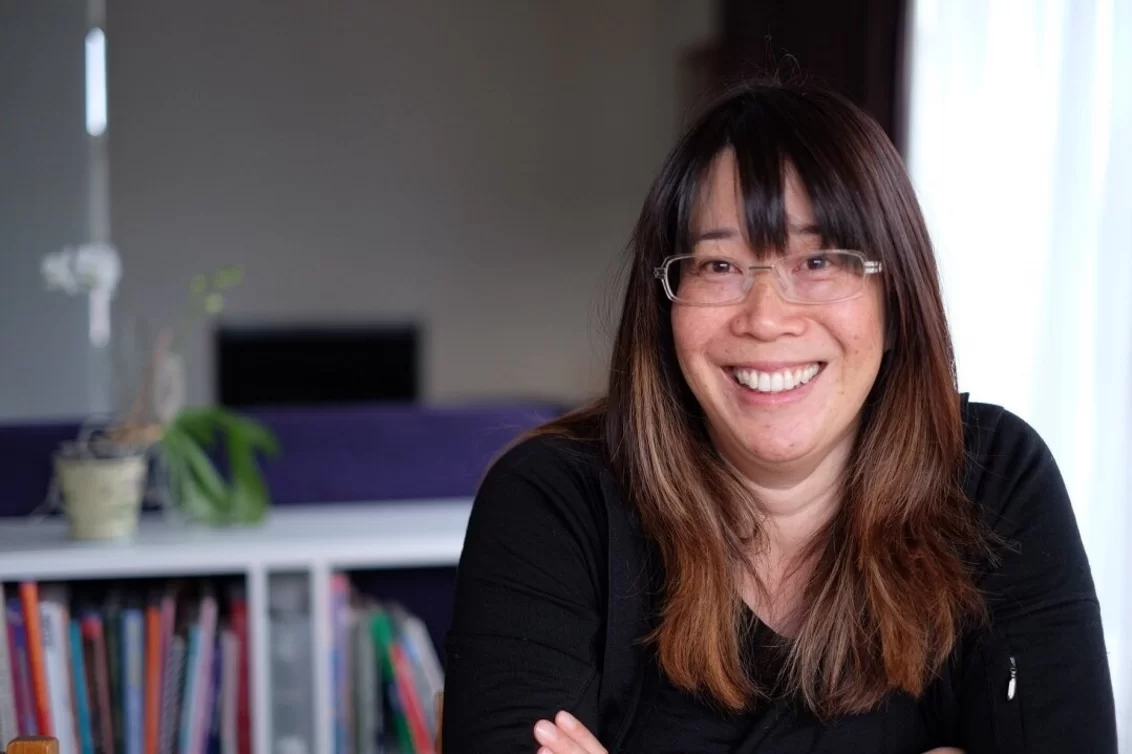How long have you had migraine and what type of migraine do you have?
I’ve had headaches and migraine since high school, so around 40 years now. I’m now in my early 50’s and post-menopausal. I typically have a headache most days that I feel pressure but I try not to take medication for these headaches as I’ve found out the hard way that this will damage my kidneys. Typically my migraine occur without an aura, typically with nausea, noise and light sensitivity, and can last anytime from 24–96 hours.
How does migraine disease impact your life?
Interesting question! I’ve had them for so long, that it’s hard to imagine life without them! My family and friends are very supportive and are used to me ‘disappearing’ suddenly. I’ve tried not to let my migraine stop me from doing what I love doing and achieving what I want to achieve. However I do find that it’s my body’s way of saying ‘stop’ even if I don’t realise that I need to.
What medications, treatments or lifestyle changes have you tried to help manage your migraine disease?
I’ve been on preventatives for around 9 years, mainly on Topamax. I’m currently on Topamax, candesartan and amitriptyline for my migraine as well as metoprolol and amlodipine for high blood pressure.
I’ve found that maintaining a routine is important. I don’t drink, I exercise three times a week with a personal trainer, which helps enormously, I avoid sitting where I’m directly facing the sun and I’m starting to wear earplugs to reduce the noise around me. I’ve learnt that I need to maintain a regular sleep and eating pattern as well as managing my stress levels. And I’m also being told off that I don’t drink enough to stay hydrated!
I’ve recently started a non-Pharmac funded medication, Aimovig around six months ago. I wanted to see if it would make a difference to give me back some ‘non-migraine’ days and this was worth the cost of a non-funded Pharmac medication.
What are your biggest migraine triggers?
I find that if any of my regular routine is out, it can affect my regular migraine cycle.
Other than that, I’ve been keeping a daily diary using N1-Headache for six months and I’m not convinced that I have any major migraine triggers. Prior to taking Aimovig, my migraine were consistently 21 days apart.
Since I’ve been on Aimovig, I’ve had three migraine – two of them were 60 days apart and the third one over Christmas was after 21 days. I can still feel pressure when they are due so I’ll still work through whether they can still be suppressed on-going.
How do you manage during a migraine attack?
My attacks can come on really quickly, sometimes within half an hour and without much warning. My neurologist suggested that I always carry around an ‘action pack’ of medication just in case I need them. If I can’t get to somewhere where I can rest quickly, I will take a rizamelt to hold it off. I try to only take one sumatriptan injection and ondansetron for the nausea and then typically will rest for as long as I need. My migraine can last between 24–96 hours.
I also find that my attacks come in waves that gradually decrease in intensity.
How do you stay positive living with migraine disease?
I’ve lived with them for a long time now that they are part of who I am but I don’t let them define me. I have a successful career in IT and I’ve been able to enjoy my hobbies such as tramping. I’m lucky enough to have done Everest Base Camp, Machu Picchu as well as lots of the amazing walks around New Zealand.
How can migraine care improve in New Zealand?
If migraine-specific medications such as Aimovig were funded through Pharmac, it would mean that more people would have access. I understand that there are more migraine medications available overseas but we simply don’t have access to them.
What advice do you have for other people in New Zealand living with migraine?
Stay positive! I will always reassess every six months to review and make sure that I’m on the best course of treatment. There’s no harm in asking if there are better treatments that might help.


